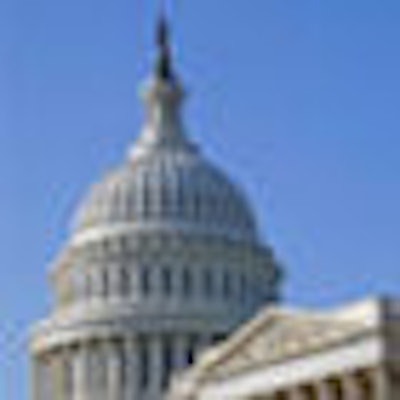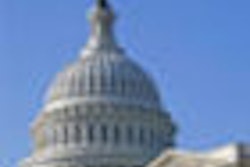
WASHINGTON (Reuters) - Republicans in the U.S. House of Representatives cleared the way on Friday for a vote next week to repeal President Barack Obama's landmark healthcare reform law, moving toward fulfilling a campaign pledge even though Democrats have the power to eventually kill it.
By a partisan vote of 236-181, the House approved rules for debating the healthcare reform repeal bill, with a vote expected on January 12.
Only a handful of Democrats joined unified House Republicans in voting to allow debate to proceed -- one day after leaders in the Democratic-controlled Senate warned that the repeal effort would die in their chamber.
Also, the White House on Thursday said Obama would veto the legislation if Congress sent it to him.
Calling the healthcare reform law "an economic and fiscal disaster of unprecedented proportions," Rep. David Dreier, a senior Republican, said: "The time to undo it before any more damage is done is quickly running out."
Republicans worked hard to drive home the economic aspect of their effort, calling their legislation the "Repealing the Job-Killing Health Care Law Act."
Some parts of the law already have gone into effect, with more set to roll into place over the next four to five years.
Republicans have complained that the law will saddle businesses with high costs and complicated regulations, hurting the economy at a time when the U.S. unemployment rate stands at 9.4%. They say that if repealed, they would move quickly to pass more effective health insurance reforms.
Democrats have heralded the law as an historic move to deliver health insurance to more than 30 million people who currently cannot afford coverage while also lowering medical costs and providing more consumer protections.
"We can choose to provide valuable benefits to millions of Americans while paying down our national deficit ... or we can choose to end valuable healthcare protections for millions and add $230 billion to the nation's deficit," said Democratic Rep. Louise Slaughter.
Huge budget deficits
The $230 billion refers to a Congressional Budget Office estimate of the impact to U.S. budget deficits by 2021 if the healthcare reform law is repealed.
That analysis, which was made public on Thursday, ignited a debate between Republicans and Democrats over the fiscal impact of the law and efforts to tackle the deficit, which is now at around $1.3 trillion.
Republicans dismissed the CBO preliminary estimate, saying it was based on flawed assumptions.
Conservative Tea Party activists, who were crucial to Republicans winning back control of the House and picking up seats in the Senate, deride the healthcare law as one more government intrusion on the heels of Washington's bailout of troubled banks and the automotive industry.
In working to repeal what they call "Obamacare," Republicans have argued that they are carrying out the "will of the people" who voted for them in November's congressional elections. Opinion polls have shown that Americans are split over the law, with about half thinking it should be given time to prove itself.
Among the law's more popular provisions are the prohibition on insurance companies denying coverage to people with "pre-existing conditions" and allowing college-age children to remain on their parents' insurance plans until age 26.
There are lawsuits and constitutional challenges to a central provision of the law, which requires everyone to eventually sign up for health insurance. Those who fail to do so would face fines of up to 2.5% of income by 2016.
And companies with more than 50 workers that do not offer medical coverage also would face fines.
The idea is to lower healthcare costs by requiring everyone to participate in insurance pools.
In an attempt to rein in insurance company profits at a time of escalating insurance premiums, the law requires that insurers spend most of the money generated by premiums on medical care.
By Richard Cowan and Kim Dixon
Last Updated: 2011-01-07 13:50:28 -0400 (Reuters Health)
Copyright © 2011 Reuters Limited. All rights reserved. Republication or redistribution of Reuters content, including by framing or similar means, is expressly prohibited without the prior written consent of Reuters. Reuters shall not be liable for any errors or delays in the content, or for any actions taken in reliance thereon. Reuters and the Reuters sphere logo are registered trademarks and trademarks of the Reuters group of companies around the world.



















